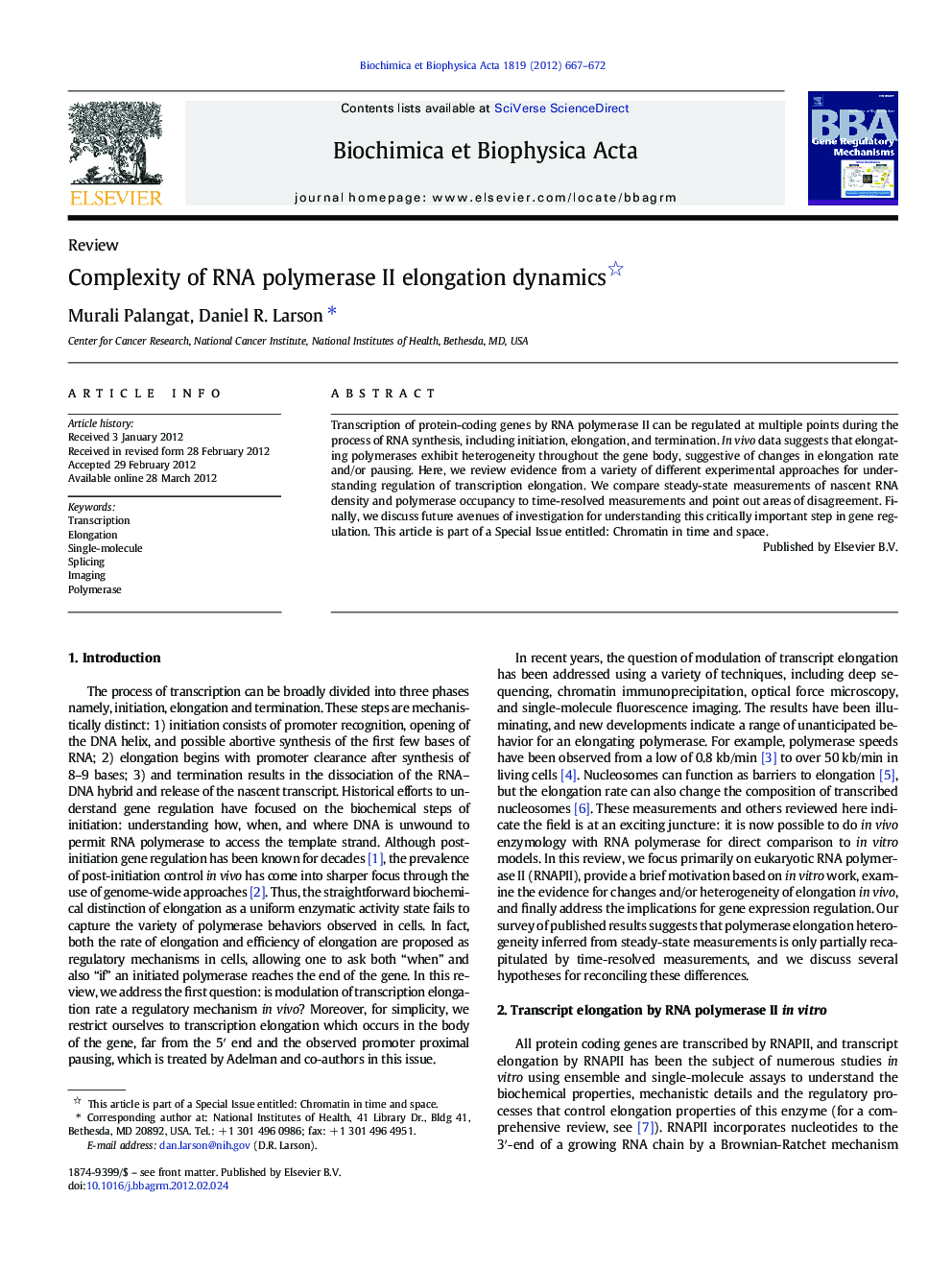| Article ID | Journal | Published Year | Pages | File Type |
|---|---|---|---|---|
| 1946572 | Biochimica et Biophysica Acta (BBA) - Gene Regulatory Mechanisms | 2012 | 6 Pages |
Transcription of protein-coding genes by RNA polymerase II can be regulated at multiple points during the process of RNA synthesis, including initiation, elongation, and termination. In vivo data suggests that elongating polymerases exhibit heterogeneity throughout the gene body, suggestive of changes in elongation rate and/or pausing. Here, we review evidence from a variety of different experimental approaches for understanding regulation of transcription elongation. We compare steady-state measurements of nascent RNA density and polymerase occupancy to time-resolved measurements and point out areas of disagreement. Finally, we discuss future avenues of investigation for understanding this critically important step in gene regulation. This article is part of a Special Issue entitled: Chromatin in time and space.
► Heterogeneity in elongation kinetics is due to pausing and changes in velocity. ► Steady-state measures of polymerase occupancy reflect both initiation and elongation. ► Chromatin plays a role in modifying elongation rates. ► Time-resolved measures of pre-mRNA synthesis do not suggest changes in elongation.
